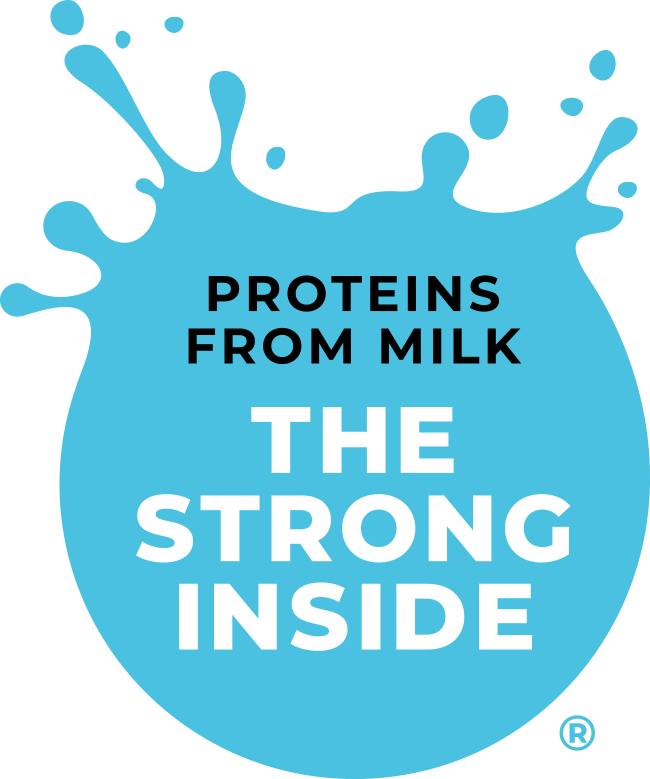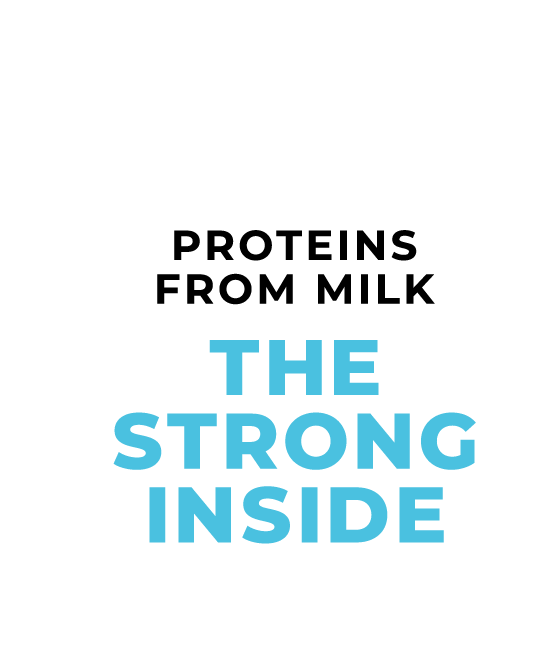Do you know which proteins from milk contain little or no lactose? Which proteins from milk are leanest? Which have the highest concentrations of protein? Let’s take a deep dive into the different types of proteins from milk you might see on product ingredient labels.

Gain a Stronger Understanding of the Different Types of Proteins From Milk.
Whey Protein Concentrate (WPC)
Can contain between 34% protein (like bars and shakes) to 80% protein (like powdered supplements). Contains some lactose (4%-8%), fat, minerals, and moisture. Considered a “fast acting” protein for its fast absorption.
Whey Protein Isolate (WPI)
Most concentrated form of whey protein available as an ingredient, with over 90% protein. Contains little or no lactose. Very low in fat. Considered a “fast acting” protein for its fast absorption.
Hydrolyzed Whey Protein or Hydrolyzates
Long protein chains have been broken down into shorter chains called peptides, making it more easily absorbed into the body. Can enhance functionality of whey proteins in food products.
“Native” Whey (Milk Whey)
Derived directly from milk through filtration techniques. More recent ingredient that’s been added to sports and medical nutrition products. Very low in lactose. Contains no fat. Considered a “fast acting” protein for its fast absorption.
Casein, Caseinates
Casein is the main protein naturally found in milk, containing nearly 100% protein in purest form. Caseinates are made with sodium, calcium, etc. to improve solubility and functionality. Lactose-free. Considered to have a “delayed effect” as a slowly digested protein.
Micellar Casein
Made from microfiltered milk. Contains casein in micellar form. Often used in sports nutrition products in concentrated form or as a substitute for other casein ingredients. Considered to have a “delayed effect” as a slowly digested protein.
Milk Protein Concentrates
Made by selectively removing lactose from skim milk, which concentrates proteins in the same ratio as found in milk. Available as an ingredient in concentrations from 42% to 80-85%. Low in lactose. Due to casein/whey blend, can yield optimal results in muscle-mass gain.
Milk Protein Isolates
Extra filtration further removes lactose from milk protein concentrates to make an ingredient with over 90% protein. Same casein to whey ratio as milk (about 80/20). Virtually lactose free. Due to casein and whey blend, can yield optimal results in muscle-mass gain.
Milk Powders
One of the most traditional forms of proteins from milk, milk powders have long been added to products like toddler foods, formulations for vulnerable individuals, those who are pregnant, and lactating mothers. That’s because their addition can help improve the amino-acid profiles and improve the overall protein quality of a variety of products, like cereal or grain products. With a concentration of about 34% protein, milk powders are seldom used in products that deliver high levels of proteins.


Isolates Vs. Concentrates
The main difference between these ingredients lies within how much protein you’re receiving per scoop. Isolates tend to contain 90% or more protein per scoop (typically making them safer for those with lactose intolerance) whereas concentrates can contain 34-80% protein. Concentrates will contain other necessary macronutrients like fat and carbohydrates to make up the remaining calories. While isolates may get you more bang for your protein buck, either can be a great supplement to a balanced, food-first approach to health and wellness when you’re looking to fill out your proteins.

